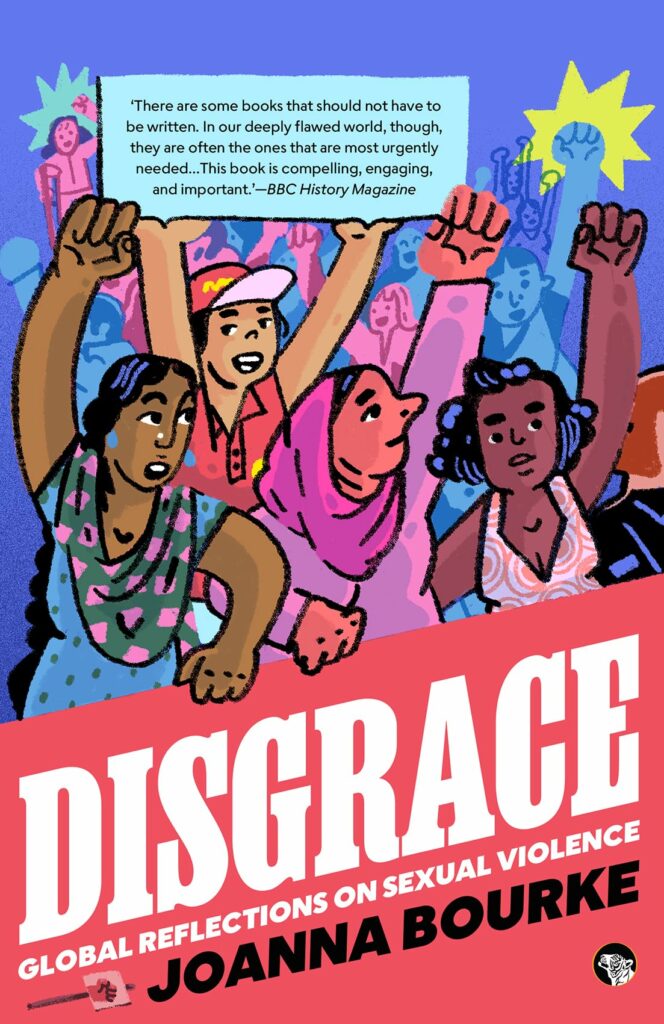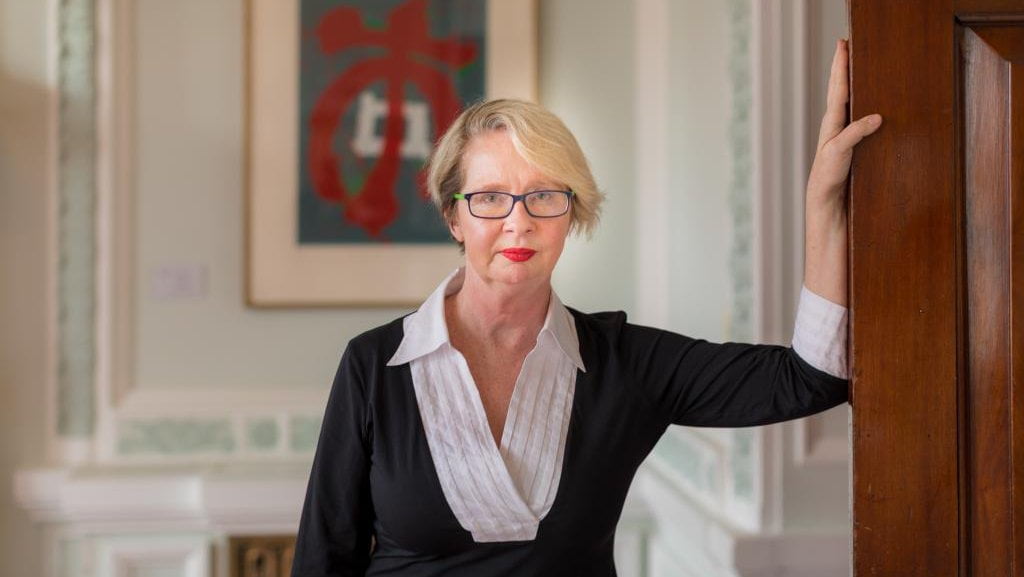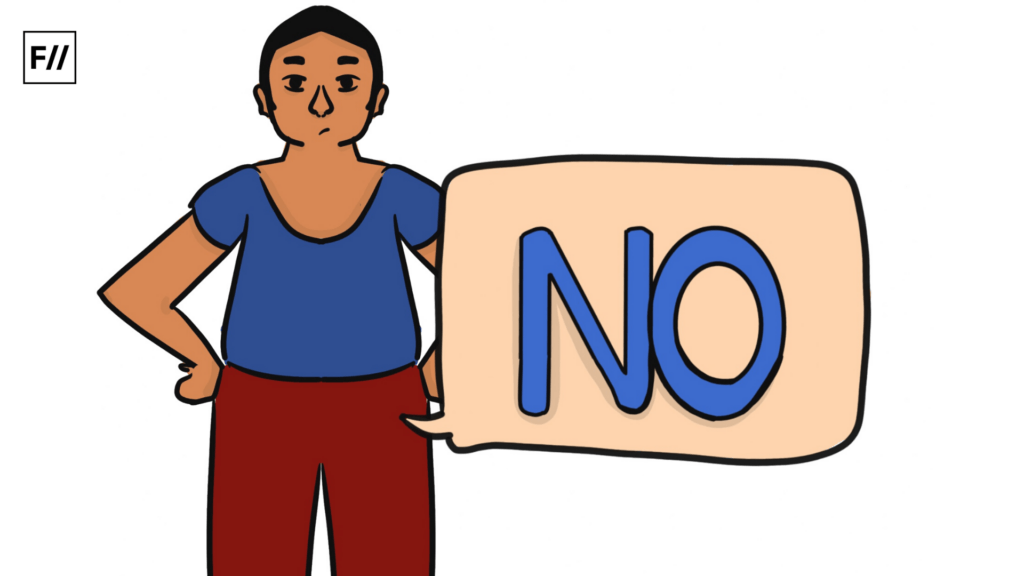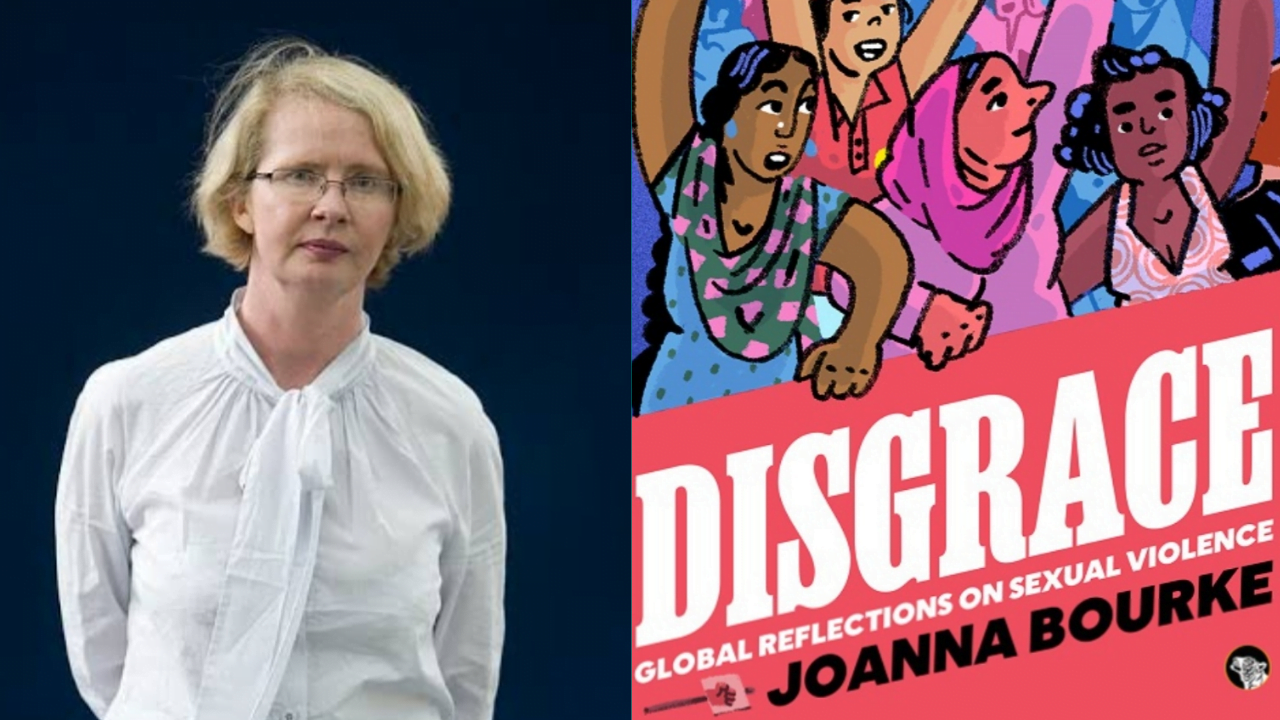Trigger Warning: This article mentions rape and gender-based violence.
Joanna Bourke’s latest publication Disgrace is a thought-provoking book that takes a deep dive into rape culture around the world. The new Indian edition of this book carries a preface by the author which specifically looks at the harrowing statistics of sexual violence and how it fosters a culture of rape in the country. She cites the example of Bilkis Bano, whose rapists were released from prison in the 75th year of Indian Independence. During the 2002 Gujarat riot, 21-year-old, pregnant Bilkis Bano had been gang-raped by 11 men while her entire family, including her small daughter. The 11 convicts were released on grounds of “good Brahmin sanskaar”.
Bilkis Bano’s distress is a reminder for feminists around the world. We must all pay attention to what Indian Feminists have been emphasising all along: the rights of women rest on shaky grounds.
Joanna Bourke
In the introduction, Bourke points out, “Bilkis Bano’s distress is a reminder for feminists around the world. We must all pay attention to what Indian Feminists have been emphasising all along: the rights of women rest on shaky grounds.”

The book carefully decodes how women’s bodies become the site of conflict through sexual violence engineered through various socio-political issues around the world. Therefore, the question of rape and sexual violence can no longer await its turn. It must be dealt with, with urgency and accountability.
The book carefully decodes how women’s bodies become the site of conflict through sexual violence engineered through various socio-political issues around the world. Therefore, the question of rape and sexual violence can no longer await its turn. It must be dealt with, with urgency and accountability.
Joanna Bourke through her book charts the history of sexual violence around the globe and how the feminist movement has developed around it. In the introductory chapter, Bourke posits sexual violence as a global issue. However, she avoids falling into the traps of gross generalisation. The entire theoretical praxis of the book is constructed through the localisation of terror and the roots of violence. “There is always a risk of emphasising similarities over differences. Any assumption that sexual violence is a universal experience insults the specificities of individual histories. Terror is always local.”

Building upon this idea, she looks at how our society treats rape survivors and the possible perils associated with our treatment of the survivor post-assault. She deconstructs the language of rape and how popular culture shapes sexual violence in a desirable and fetishising manner.
The voyeuristic male gaze instrumental behind most mainstream pornography and even the media industry engaging with soft porn twist the language of violence and undermine the pain and the suffering of the survivor. However, it is not limited to the mainstream culture, even research reports and academic works often cashes in on the survivor’s experience without their consent. Such treatment inevitably crosses the unspoken boundary and renders the survivor even more vulnerable. Language barriers often produce gaps that cannot be navigated despite one’s best efforts.
The power and politics of shame
Bourke’s book also dedicates a section of the book to the power and politics of shame. She discusses the immensely powerful inception of the #MeToo movement as an empathetic acknowledgement of sexual violence by activist Tarana Burke. Her political work helping girls, women of colour, and queer folk overcome their trauma and thrive in their everyday lives escalated after she coined ‘MeToo’ in 2006. Bourke situates this discourse with intersectional politics and the economy of shame is imposed upon women from different walks of life from different races, gender, caste, ethnicity, and profession in different ways.

She also talks about justice and how it is made available or denied to women in different ways. She cites the example of a woman from Southern Italy whose rape was not acknowledged by the court. The reason was that she was wearing jeans and it could not have been taken off off without her consent, so it may not have been rape. This court verdict sparked outrage amongst the leftist political group in Italy and brought into focus the dire state of female representation within the Senate. This incident started ‘International Jeans for Justice Day’ to promote a fair and rape-free society.
The chapter further reiterates that justice for women rests on shaky grounds and that whatever progress has been achieved due to feminist endeavour over the last few centuries can easily be revoked and undone. One of the chapters in the book also talks about how different gender perceives rape in a different light. For trans and queer people, ‘corrective rape’ becomes one of the greatest evils that is rarely talked about. ‘Corrective rape’ is an attempt made by the perpetrator to impose heteronorm on them. It is violence that is not only legitimised but often justified under the pretext of safeguarding “traditional values and cultures”.
Bourke also highlights the state of the prison system and how certain bodies become victimised within it. Even with heavily segregated binarist gender, rape culture is not only fostered but also thrives. Bourke delves deeper into the implication of consent and how it gets redefined by society within the context of marital rape.
Bourke also highlights the state of the prison system and how certain bodies become victimised within it. Even with heavily segregated binarist gender, rape culture is not only fostered but also thrives. Bourke delves deeper into the implication of consent and how it gets redefined by society within the context of marital rape.
Marital rape is still not considered a crime because of the societal conditioning of women through the hetero-patriarchal idea of marriage. The discourse begs the question that, if sex is owed in marriage, then what can be configured as rape within conjugal relationships. The answer to this question cannot be found without deconstructing the idea of marriage itself and the gender role of women constructed by it in our society.

Bourke also engages with the idea of ‘militarised rape’ and how women’s bodies become the site of violence and honour during times of political distress and crisis. During war or political, communal violence, sexual violence against women sees a steep rise. It is because patriarchal societies, through gross objectification, locate their honour within women’s bodies.
Bourke also engages with the idea of ‘militarised rape’ and how women’s bodies become the site of violence and honour during times of political distress and crisis. During war or political, communal violence, sexual violence against women sees a steep rise. It is because patriarchal societies, through gross objectification, locate their honour within women’s bodies.
Thus it strips women of their rights over their bodies and makes them vulnerable to rape from the opposing armies. “The political uses of accounts of rape are not only important in mobilizing support for memories of armed conflicts, but for reframing memories of war in its aftermath.” However, in this chapter, Bourke employs a nuanced perspective that rises above the stereotypical construction of men of colour as violent and sexual as opposed to Western white men.
Localised action through grassroots feminist collective actions
In the finishing chapter, titled ‘A Rape-Free World’, Bourke writes that “through the creation and cultivation of effective coalition and strategies of resistance, it is possible to forge rape-free futures for everyone.”
She ends the book on a positive note, almost as a remedy to the grim narratives provided throughout the book’s narrative. However, she also makes it clear that such a future can only be achieved through collective effort on all our parts. Sexual violence does not, or rather cannot share a common causality. Therefore, we cannot expect to have a ‘one solution for all’ approach that could effectively contend with sexual violence. Neither can we all agree on one particular method, even within the localised feminist groups.
Therefore, Bourke writes “Effective solutions to high levels of sexual violence are difficult to pinpoint- not because there are no positive ways forward, but for the opposite reason. The strategies open to us are legion.” Thus, she calls for localised action through grassroots feminist collective actions. In the concluding paragraph of the book, Bourke writes on a note of optimism and hope, “Every community has a wealth of knowledge that can be used to address its particular needs and desires for a rape-free world.” It highlights once again, “ It is a task that will require the political, ideological and discursive labour of every global citizen.”
About the author(s)
Debabratee (she/they) is a student of English Literature at Jadavpur University. When they are not found reading or writing, they are found running after their pet dog and cuddling with him. They are avid binge-watcher of all kinds of OTT content and like to dissect and analyse them in their free time.




